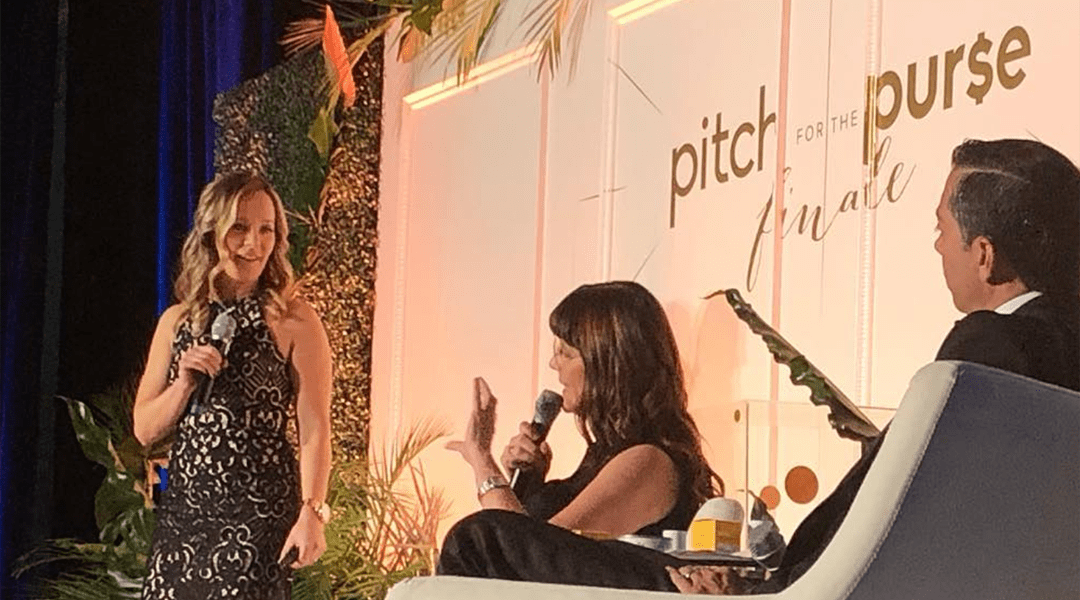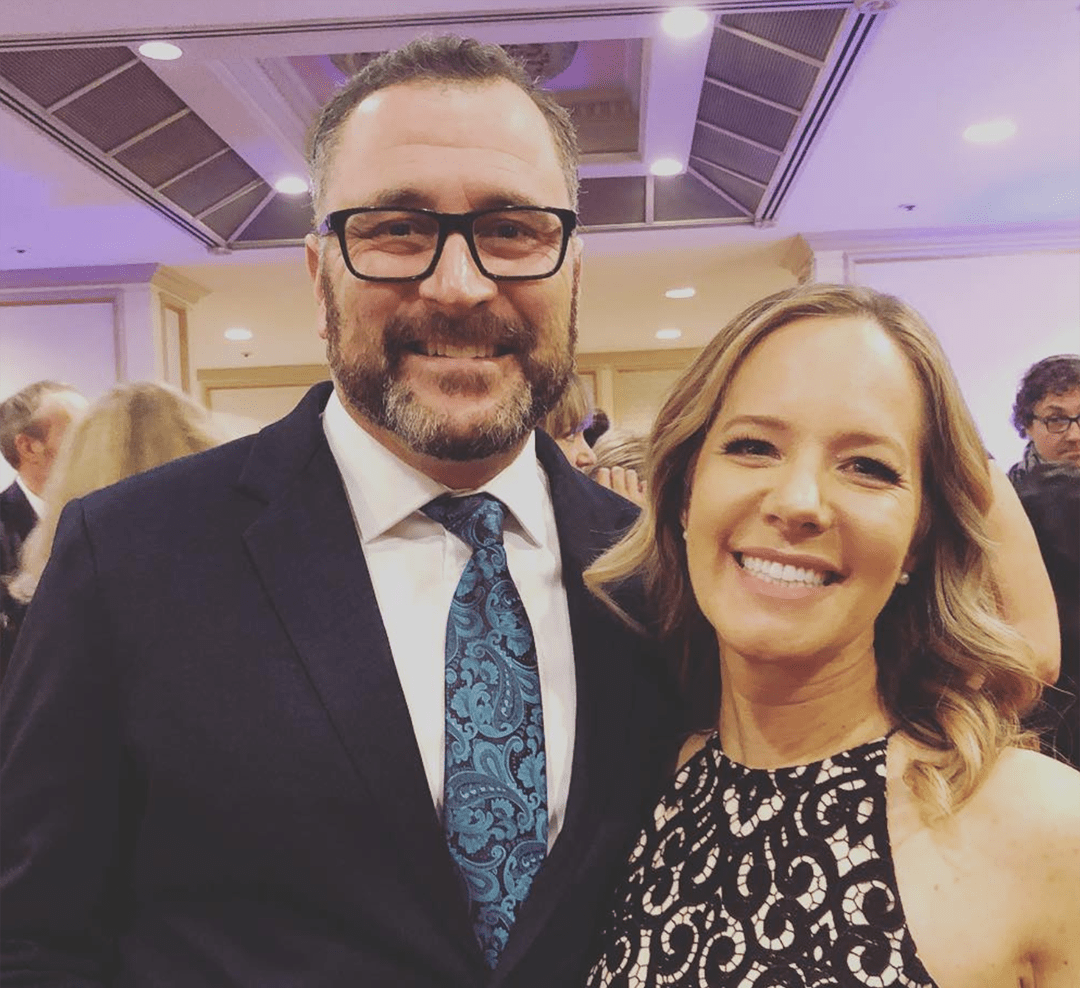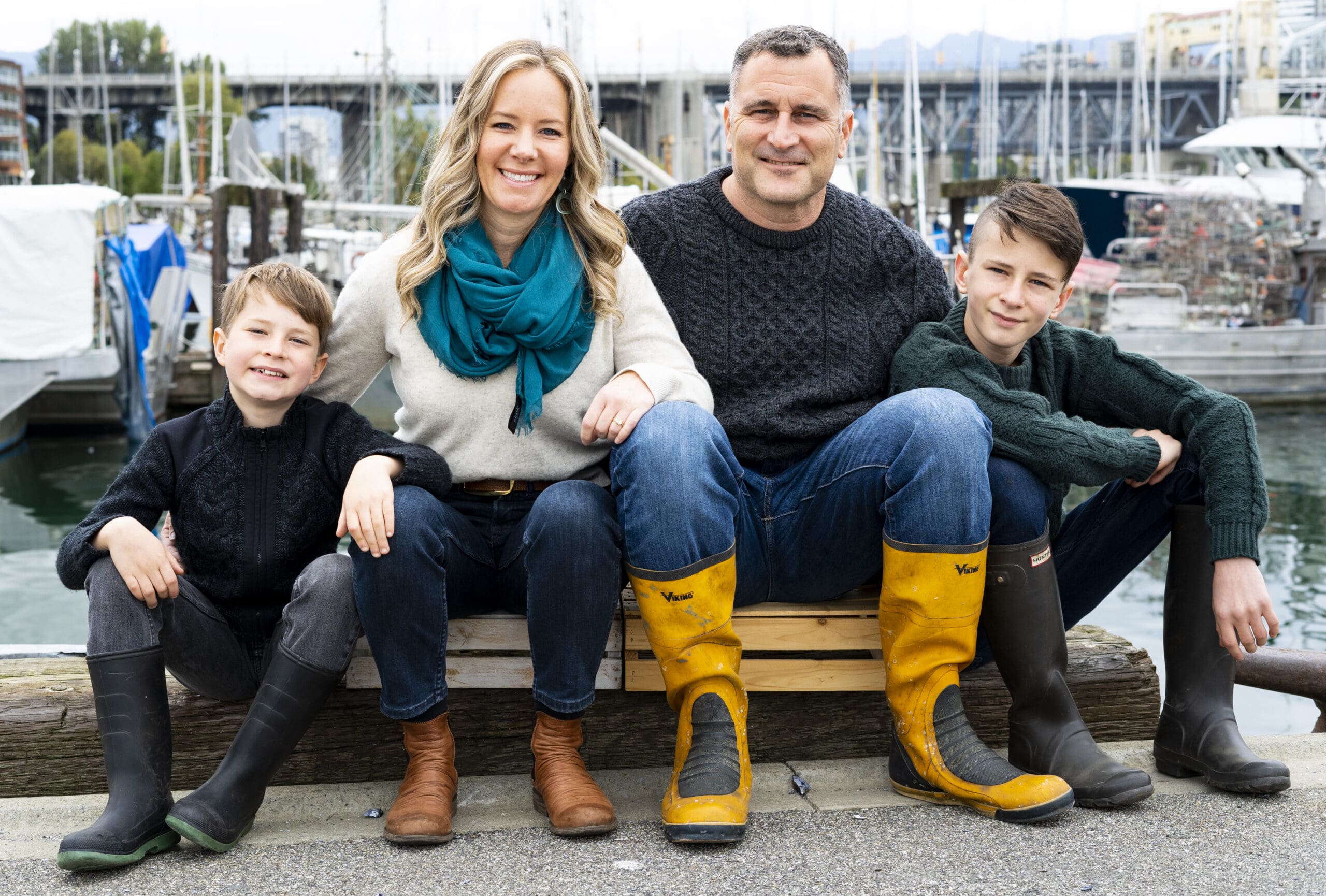Looking Back: Three Years Since Pitch For The Purse Win
Fishing StoriesIf you’ve followed us for a while, you may remember Sonia winning the Forum’s Pitch for the Purse three years ago – a prestigious national business pitch competition. In this article, she reflects on the win and where she thought the business would be vs. where it is today.

If you’ve followed us for a while, you may remember three years ago when I won the Forum’s Pitch for the Purse – a prestigious national business pitch competition. This week, the gala finale resumes in person and I am thrilled to return to the Fairmont Hotel Vancouver ballroom to watch this year’s finalists. This got me reflecting on where we were three years ago, where we thought we’d be today, and where we actually ended up. It was such a fascinating journey of reflection, full of surprises and important realizations, that I just had to share it with you!

To give you an idea of where we were back in the spring of 2019, Skipper Otto had 2,400 members in its 2018 season who bought the partial catches of around 25 fishing families in BC. And at the start of 2019, we hired our 4th full time permanent employee -- yay for Celine! We were a small but growing 10 year old business.
When I dug out my pitch deck for my 2019 winning pitch this week, I remembered how absurdly ambitious I thought my predictions were at the time. Tripling our revenues by 2021?! Building a multi-million dollar processing facility? We’d never seen that level of growth and I was nervous about stating such big, bold goals so publicly. But, emboldened by my mentors and respected peers through organizations like The Forum and SheEO who encouraged me to think big, I went for it. And, when the 800-member audience at the Pitch for the Purse finale selected me as the 2019 winner, something shifted in me, and I began to believe I could do it.
I confidently set to work with my small team thinking through all the things that would need to happen if we were to triple the size of our company. We laid out a path for when we would need to pull the trigger on a variety of plans. A year later, we were poised and ready for growth. And then the pandemic hit.
In the blink of an eye, prospective Skipper Otto members were stuck at home reconsidering what was important to them and our membership exploded. Thanks to the vision planning and preparation we’d done in 2019, we were ready to meet the demand. In one year, we pulled the trigger on most of our 3-year plans and blew past the “ambitious” projections that I was almost too afraid to say out loud. Just now in spring of 2022, we hired our 13th full-time employee (welcome Peter!) and are on track for 8,500 members this year who are pre-purchasing most of the seafood that will be caught by over 40 fishing families in BC and in Nunavut.
But things didn’t entirely unfold the way I had expected. In 2019, I believed that the only way to increase our impact was to grow the company. More members would mean more sustainable seafood we could buy from more families at fair prices, thereby improving the lives of fishing families and protecting marine ecosystems. And so, my focus was simply on doing more of exactly what we were already doing. But the pandemic wasn’t the only unforeseen global shift that came in 2020. George Floyd was murdered by a police officer in Minneapolis in May, 2020. The ongoing Mi’kmaq lobster fishing dispute erupted into violence in Yarmouth, Nova Scotia in September, 2020. 215 unmarked graves were found on the site of the Kamloops Indian Residential school in July, 2021. Social justice movements rose to the forefront and conversations around what we were doing to acknowledge and address systemic racism, oppression, and injustice were on everyone’s lips. In 2020, I began an ongoing project of “Active Listening” and in 2021 I wrote this reflection on how one year of listening to the voices of Indigenous and non-Indigenous fishing families and others in the fishing industry had guided the direction of Skipper Otto.
This led me to my continuing work to articulate the Skipper Otto Theory of Change: that a just and equitable sustainable seafood system is achieved when members of diverse communities all commit to doing things differently in order to realize that shared vision. And in articulating this theory, the purpose and vision for Skipper Otto came into sharper focus: that our vision is not just for Skipper Otto to sell more fish, but to re-write the norm for food systems across Canada and around the world. That in fact there is a certain size of company that is ideal for Skipper Otto to be and that beyond that, bigger impact comes not from more Skipper Otto members, but from proliferating the Skipper Otto model. At that moment in summer of 2021, during the conditional period of negotiating a lease for a new 5,000 sq foot facility, we pivoted. We declined the lease and committed to keeping Skipper Otto in our cramped facilities at the Fishermen’s Wharf for at least a few more years to allow us to focus on impact instead of growth. We applied for and received a generous BC Agritech grant to help us build a software platform that codifies and simplifies the Skipper Otto model into a replicable program. We’re poised to launch the software platform for Skipper Otto next month and to onboard the first five companies by the end of the year including producers of naturally raised BC meats and honey, and Indigneous businesses that share their traditionally harvested fish and meats in their own communities and beyond.
Looking back over those 3 years, I’m so proud of how far we’ve come and the big, bold decisions we’ve made, not only to grow but also to be resilient, to listen, to respond, and to pivot in alignment with our values. Being self-aware and reflective has allowed me to continually redefine “success” – away from a “more, more, bigger, bigger” mentality and toward a “better and more impactful” mentality based on my values and vision. One which has led to the thriving and flourishing of the company and to success any way you measure it. I’ve loved this process of reflecting back over the past three years and I know that when I’m at the Pitch for the Purse finale this week, I’m going to be so inspired by the bold visions of the competing finalists. And their visions will fuel my creative thinking when I sit down to write my next three year painted picture this summer!

P.S. There are SO many influential people and organizations who helped me along these past three years and I want to highlight a couple of them here:
- Huge thanks to Ali Pejman for choosing me at the semi-finals and being my Pitch for the Purse finale mentor in the fall of 2018. Ali pushed me hard to spell out a three-year vision for the business. He encouraged me to be bold in committing to our unique membership model, to say no to chasing every shiny new distraction, and really focus on our existing model and the impact we could create with it.
- And enormous thanks to my peer mentor and friend Toni Desrosier, founder of Abeego, for putting me on to the idea of painting the picture of the vivid vision for your company, popularized by successful entrepreneur Cameron Harold in his book Vivid Vision. Some say entrepreneurship is a lonely and solitary path but not with mentors, peers, friends, and organizations like Toni, The Forum, SheEO, the former UBC iHub, Hollyhock’s Social Venture Institute, and too many others to be named here!
